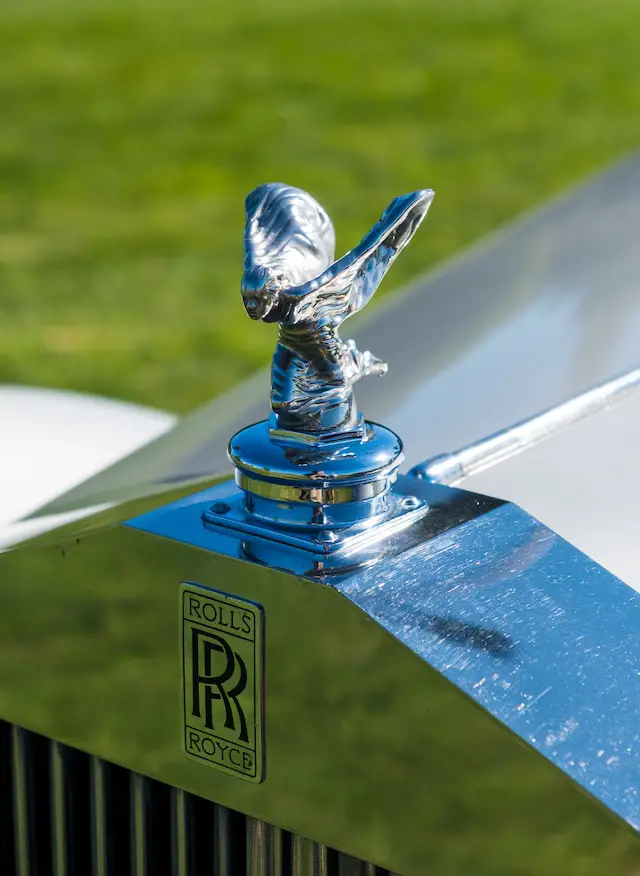Both prestige bias and similarity bias can significantly impact our decision-making process. While prestige bias is based on perceived status or reputation, similarity bias stems from shared characteristics such as race, gender, or ethnicity.
What is Prestige Bias?
(Photo by Daniel Salcius on Unsplash )

Prestige bias is a type of cognitive bias that occurs when we give preferential treatment or show more respect towards individuals who hold high-status positions, have impressive credentials, or belong to prestigious organizations. It’s a form of social hierarchy where people are judged based on their status rather than their actual ability or achievements.
This type of bias can be found in many settings such as workplaces, schools, and even in everyday life. For instance, you might find yourself treating your boss with more reverence and admiration compared to other colleagues due to their position or title.
While prestige itself may not necessarily indicate skill or competence, it often leads others to assume this is the case. This can lead to an unfair advantage for those with high status and disadvantage for those without it.
However, it’s important to note that prestige bias isn’t always negative. Sometimes it can drive people forward by giving them something positive to strive towards. While recognizing someone’s accomplishments is admirable; blindly favoring one person over another solely based on their perceived status can be detrimental in different aspects of life.
What is Similarity Bias?
(Image by pikisuperstar on Freepik)

Similarity bias is the tendency to favor people who are similar to us in some way. This can include shared interests, backgrounds, beliefs, or even physical characteristics. It’s a natural human instinct that helps us feel more comfortable and connected with others.
However, similarity bias can also lead to discrimination and exclusion of those who don’t fit our perceived mold. For example, if a hiring manager only hires candidates who went to the same college as them or share similar hobbies, they may miss out on talented individuals from different backgrounds.
It’s important to be aware of our own biases and actively work towards overcoming them. One way to do this is by seeking out diverse perspectives and experiences in both personal and professional settings.
By expanding our understanding of different cultures, lifestyles, and viewpoints we can break down barriers created by similarity bias and create a more inclusive society.
Prestige bias Vs. Similarity bias – Key differences
Prestige bias and similarity bias are two distinct types of biases that exist in different contexts. Prestige bias happens when we give more credit or esteem to people who have a certain status, title, or reputation. It is common in workplaces and society where hierarchies exist. On the other hand, similarity bias occurs when we prefer people who share similar traits with us such as age, gender, race, education level, etc.
The main difference between these biases is their basis for judgment. The prestige bias relies on external factors such as job titles or achievements while the similarity bias focuses on internal attributes like personality traits or shared experiences.
Another significant difference between these biases is their impact on decision-making processes. While prestige bias can lead to favoritism towards individuals with higher status regardless of their abilities or competence levels; similarity bias can cause us to overlook qualified candidates who possess unique qualities but do not fit our mental picture of what an ideal candidate should look like.
To avoid falling prey to either type of biased thinking requires self-awareness and cognitive flexibility – being open-minded enough to recognize how our assumptions may be influencing our judgments and decisions.
It’s essential to understand the differences between prestige and similarity biases so that you can identify them in yourself and work towards making unbiased decisions based purely on merit rather than external factors or personal preferences.
How to Overcome Prestige Bias?
Prestige bias can be a difficult mindset to overcome, but it’s important to do so in order to make fair and unbiased decisions. Here are some tips on how to overcome prestige bias:
Recognize that just because someone has a prestigious title or position doesn’t necessarily mean they have all the answers or are always right. It’s important to evaluate their ideas and arguments objectively.
Seek out diverse perspectives from people of different backgrounds and experiences. This can help you gain a more well-rounded understanding of the issue at hand.
Question your own biases and assumptions. Be aware of any preconceived notions you may have about certain individuals or groups based on their perceived level of prestige.
Focus on the content rather than the source. Judge ideas based on their merit rather than who is presenting them.
By following these steps, you’ll be able to overcome prestige bias and make more informed decisions based on objective evaluation rather than personal biases.
How to Overcome Similarity Bias?
Similarity bias is a natural tendency to gravitate towards people who are like us. However, it can also lead to exclusion of those who do not fit the mold. To overcome similarity bias, we must first acknowledge it and make an effort to challenge our own assumptions.
One way to do this is by actively seeking out diverse perspectives and experiences. This could mean attending events or joining groups where you will meet people from different backgrounds. It’s important to listen with an open mind and try to understand their point of view without judgment.
Another approach is through education and exposure. By learning about different cultures, customs, religions, and lifestyles we can gain a better understanding of those who are different from ourselves. This can help us recognize our own biases and become more accepting of others.
It’s also important to examine our hiring practices in the workplace. We should strive for diversity in our teams by looking beyond surface-level similarities such as race or gender and instead focus on skills, experience, and potential.
Overcoming similarity bias takes effort but it’s essential for creating a more inclusive society both personally and professionally. By embracing diversity we can learn from each other’s differences rather than letting them divide us.
What is the prestige effect in psychology?
The prestige effect in psychology refers to the phenomenon where people are more likely to comply with the requests or opinions of those who are perceived as prestigious. Prestige is often associated with social status, wealth, education, and expertise. When a person perceives someone else as having these qualities, they may be more likely to follow their lead.
Studies have shown that individuals who are perceived as prestigious tend to hold greater influence over others than those who lack such status. This can lead to situations where people blindly follow the advice or decisions of high-status individuals without question.
Psychologists believe that one reason for this effect is that we have evolved to rely on social cues when making decisions about whom to trust and follow. People tend to prefer leaders who possess certain traits like confidence, competence, and charisma – all of which can contribute to perceptions of prestige.
However, it’s important not only to consider the opinions of those seen as prestigious but also evaluate them critically based on their merits rather than merely accepting them at face value.
What are example of prestige?
Prestige can manifest in various forms, and it often depends on the context. In some cases, prestige may refer to social status or wealth, while in others it may indicate expertise or a high level of education.
One example of prestige can be seen in the medical field where doctors are highly respected due to their extensive training and knowledge. People trust them with their health because they perceive them as experts who have earned their position through years of hard work.
Another example is the fashion industry. Luxury brands such as Gucci and Louis Vuitton hold a certain level of prestige that attracts consumers willing to pay a premium for their products. These brands are associated with high quality and exclusivity which adds value to their brand image.
In academia, scholars who publish papers in prestigious journals like Nature or Science gain recognition for producing research deemed valuable by peers within their respective fields. This recognition leads to more opportunities such as funding for further research projects.
Prestige is subjective but generally refers to individuals or entities that possess qualities valued within specific contexts whether it’s expertise, status, knowledge or even talent.
Featured Image By – Daniel Reche









